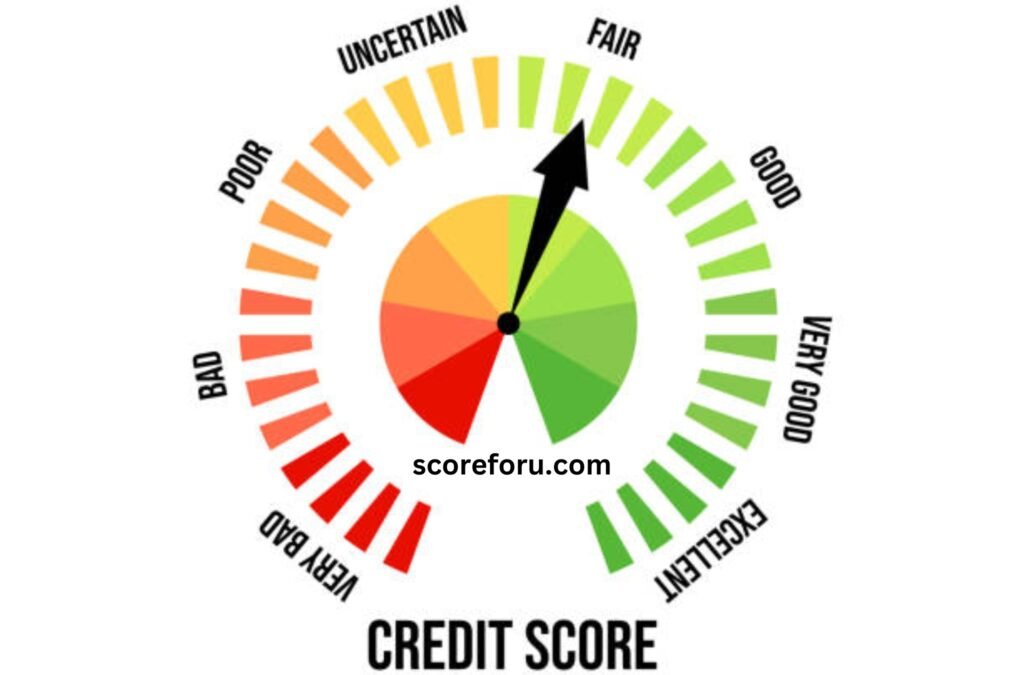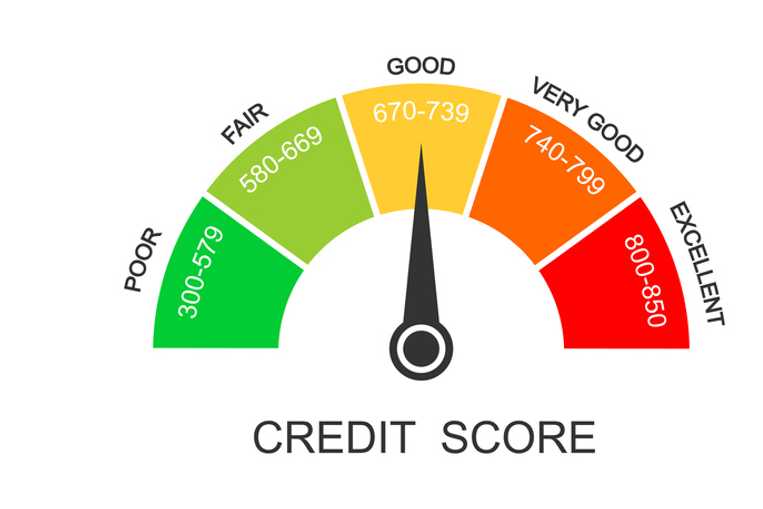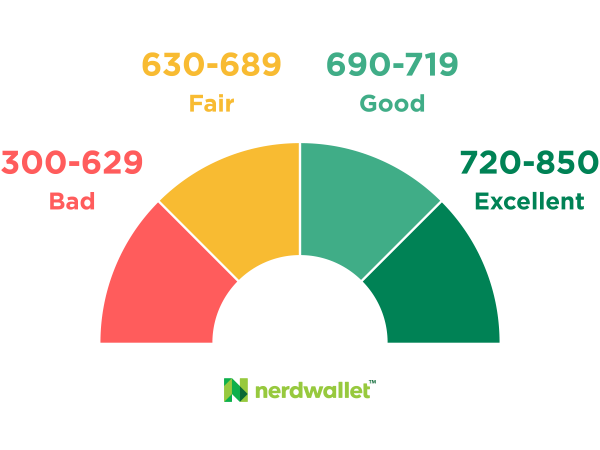The best credit score is typically considered to be 850, which is the highest possible score in most credit scoring models. A credit score represents an individual’s creditworthiness and is used by lenders to determine the likelihood of a borrower repaying their debts.
While the specific credit score ranges may vary between different models, a score of 850 is generally regarded as excellent and demonstrates responsible financial behavior. Having a high credit score opens up opportunities for better interest rates, access to credit cards with more favorable terms, and easier approval for loans.
However, it’s important to note that achieving a perfect credit score is extremely rare and not necessarily a requirement for obtaining credit. We will explore the factors that influence credit scores, how they are calculated, and provide tips on how to improve and maintain a healthy credit score.
Understanding Credit Scores
When it comes to financial matters, understanding your credit score is crucial. Your credit score plays a significant role in determining your financial health and eligibility for loans, mortgages, and even employment opportunities. By familiarizing yourself with the key factors that impact your credit score, as well as the credit score ranges, you can take proactive steps to improve your creditworthiness. In this article, we’ll delve into the important factors that contribute to your credit score and explore the different credit score ranges.
Important Factors
Your credit score reflects your financial habits and how well you manage your debt. Several factors are taken into consideration when calculating your credit score:
- Payment history: Timely payments positively impact your credit score, while late payments or defaults can have a negative impact.
- Credit utilization: The amount of credit you use compared to your total available credit can affect your credit score. Aim to keep your credit utilization ratio below 30%.
- Credit history length: The length of your credit history demonstrates your ability to manage credit over time. A longer credit history can boost your credit score.
- Credit mix: Having a diverse mix of credit types, such as credit cards, loans, and mortgages, can positively impact your credit score.
- New credit: Opening multiple new accounts within a short period may indicate financial instability and can lower your credit score.
By focusing on these important factors, you can actively manage your credit and work towards improving your credit score.
Credit Score Ranges
Credit scores typically range from 300 to 850, with higher scores indicating greater creditworthiness. Here’s a breakdown of the different credit score ranges:
| Credit Score Range | Credit Rating |
|---|---|
| 300 – 579 | Poor |
| 580 – 669 | Fair |
| 670 – 739 | Good |
| 740 – 799 | Very Good |
| 800 – 850 | Exceptional |
Understanding where your credit score falls within these ranges can give you a sense of how lenders perceive your creditworthiness. If your credit score is in the lower range, it may be beneficial to focus on improving your credit habits to raise your score and access better loan options.

Determining The Best Credit Score
The best credit score can be determined by evaluating various factors such as payment history, credit utilization, and length of credit history. A higher credit score indicates better financial management and increases chances of loan approvals and favorable interest rates.
Lenders’ Perspective
From a lender’s perspective, the best credit score for an individual is the one that demonstrates a strong financial history and responsible payment behavior. Lenders rely on credit scores to evaluate a person’s creditworthiness and determine the risk associated with lending them money. A higher credit score indicates lower risk, making it more likely that lenders will approve loan applications and offer favorable interest rates.
It’s important to note that different lenders may have slightly different criteria when determining the best credit score. While most lenders use the FICO score, which ranges from 300 to 850, some may also consider alternative credit scores or have their own proprietary scoring models. However, the principles underlying the assessment remain similar across the board.
Credit Score Goals
When striving for the best credit score, individuals should aim for a score that falls within the “excellent” range. FICO defines a credit score of 800 or above as excellent, reflecting a history of responsible credit management and a low likelihood of defaulting on payments. Individuals with excellent credit scores typically enjoy easier access to credit, lower interest rates, and more favorable borrowing terms.
While not everyone may achieve a perfect 850 score, maintaining a credit score above 760 is generally sufficient to qualify for the most advantageous lending opportunities. It’s crucial to consistently monitor and manage one’s credit to retain a high score by paying bills on time, keeping credit utilization low, and avoiding excessive credit inquiries.
Remember that credit scores are dynamic, and they can fluctuate based on several factors, including payment history, credit utilization, length of credit history, new credit inquiries, and credit mix. Regularly reviewing and understanding credit reports can help individuals identify areas for improvement and take proactive steps towards achieving their credit score goals.
Tips To Achieve A Good Credit Score
Having a good credit score is essential when it comes to applying for loans, credit cards, or even renting an apartment. It is a numerical representation of your creditworthiness and serves as an indicator of how likely you are to repay your debts. While building and maintaining a good credit score can take time and effort, the benefits are well worth it. Here are some tips to help you improve your credit score.
Pay Bills On Time
One of the most important factors in determining your credit score is your payment history. Late or missed payments can significantly lower your score and stay on your credit report for up to seven years. To ensure that you never miss a payment deadline, consider setting up automatic payments or reminders. By paying your bills on time, you not only improve your credit score but also demonstrate responsible financial behavior.
Reduce Credit Utilization
Credit utilization refers to the percentage of your available credit that you are currently using. Ideally, you should aim to keep your credit utilization below 30% to maintain a good credit score. To reduce your credit utilization, consider paying off outstanding balances, making multiple smaller payments throughout the month, or requesting credit limit increases. By keeping your credit utilization low, you show lenders that you are not overly reliant on credit and manage your finances responsibly.
Build A Solid Credit History
Your credit history reflects your past use of credit and plays a crucial role in determining your credit score. To build a solid credit history, start by opening a credit account, such as a credit card or a small loan, and use it responsibly. Make regular payments and avoid maxing out your credit limit. Additionally, keeping your oldest credit accounts open can positively impact your credit score as it shows a longer history of responsible credit behavior.

Credit: time.com

Credit: www.nerdwallet.com
FAQ Of What Is The Best Credit Score
What Is A Credit Score?
A credit score is a three-digit number that represents your creditworthiness. It helps lenders assess the risk of lending you money. It is based on factors like your payment history, credit utilization, length of credit history, and types of credit used.
Why Is A Good Credit Score Important?
A good credit score is important because it can affect your ability to get approved for loans, credit cards, and other forms of credit. It can also impact the interest rates you receive and the terms of your credit agreements.
A higher credit score generally indicates a lower risk to lenders.
How Can I Improve My Credit Score?
To improve your credit score, focus on making timely payments, keeping your credit utilization ratio low, maintaining a good mix of credit accounts, and avoiding excessive applications for new credit. Regularly checking your credit report for errors and disputing any inaccuracies can also help improve your score.
How Often Is My Credit Score Updated?
Your credit score is typically updated whenever new information is reported by your lenders to the credit bureaus. This can vary, but your credit score is generally updated once a month. It’s important to note that each credit bureau may have slightly different information, so your scores may vary slightly between them.
Conclusion
To sum up, understanding your credit score is essential in managing your financial well-being. A good credit score opens up opportunities for loans, credit cards, and favorable interest rates. Remember, a solid payment history, low credit utilization, and a mix of credit types contribute positively to your score.
Regularly monitoring and improving your credit score should be a priority to ensure a brighter financial future.
